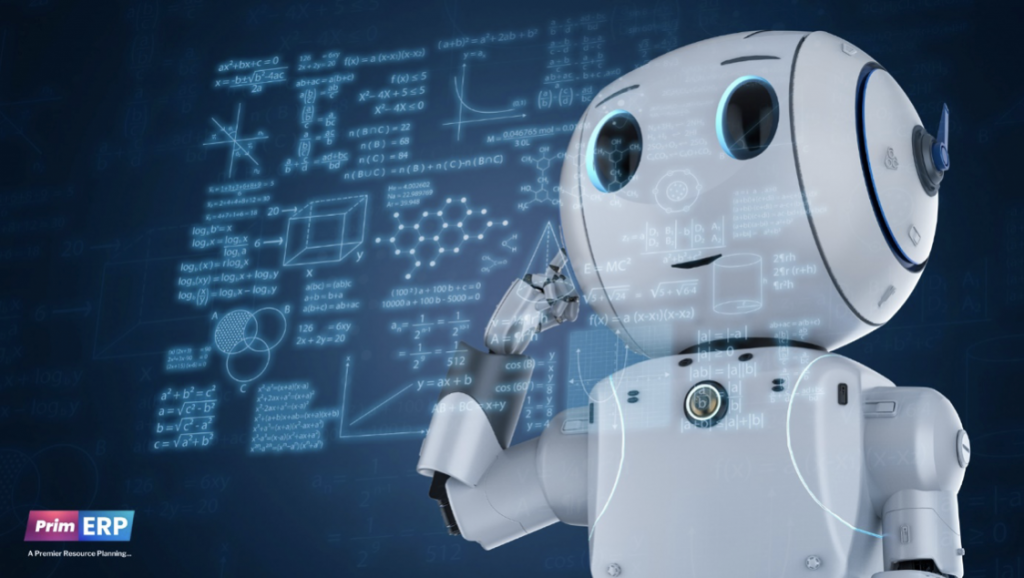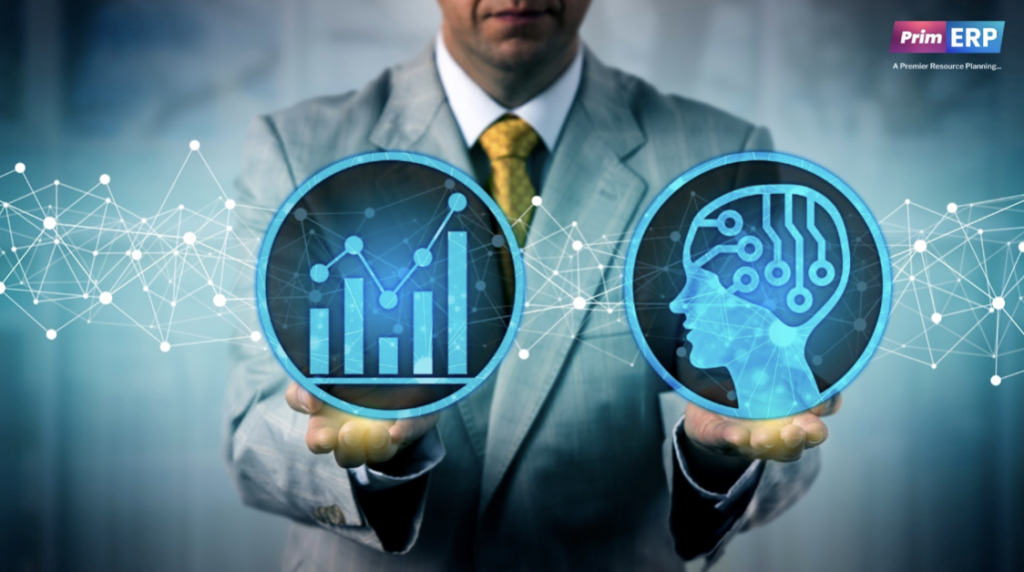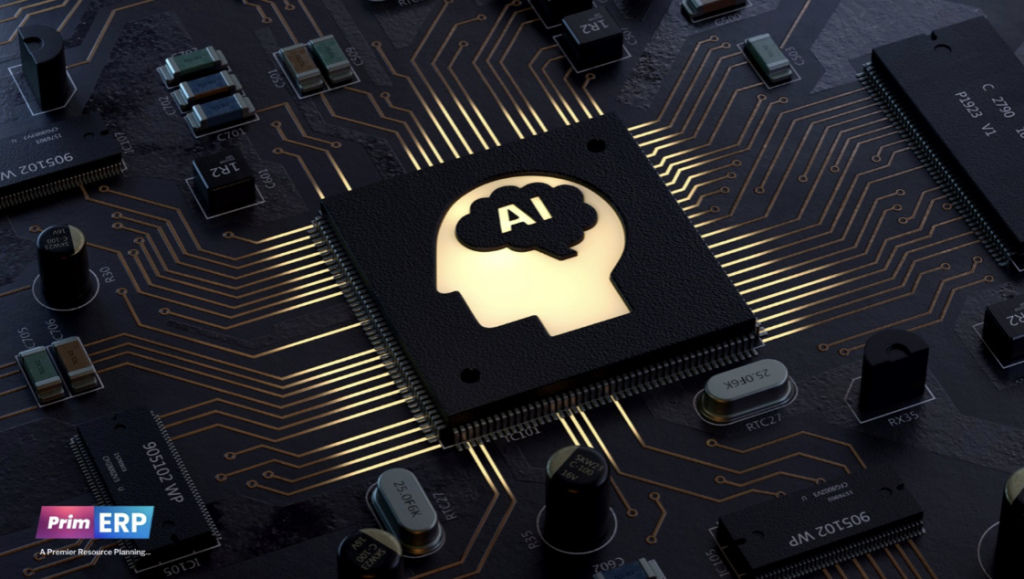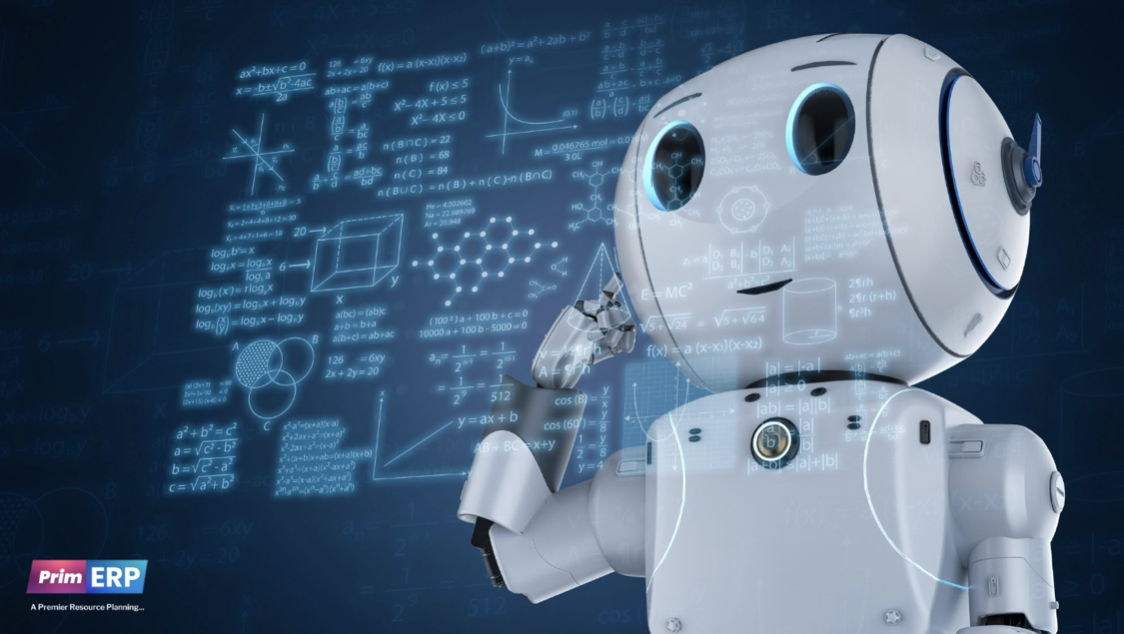Impact of Artificial Intelligence & Machine Learning on ERP
With many organizations considering these technologies as a potential threat to their business, the impact of artificial intelligence (AI) and machine learning (ML) on ERP systems has become a hot topic in recent years.
The use of AI and ML allows computers to learn from data and carry out tasks that would typically require human intelligence. These technologies are being incorporated into ERP systems to give companies better insights and predictions, automate tedious tasks, and enhance decision-making abilities.
The ability to offer real-time data analytics is one of the biggest effects of AI and ML on ERP. With the ability to analyze data as it is generated, ERP systems can now give businesses quick insights into their operations. Due to the ability to make quicker and better-informed decisions, businesses’ overall performance has improved.
The capabilities of Enterprise Resource Planning (ERP) systems could be greatly improved by Artificial Intelligence (AI) and Machine Learning (ML), which would have a significant impact on business operations. The following are some ways that AI and ML can improve ERP and their effects:
AI and ML can make it possible for ERP systems to quickly and accurately process large amounts of data, facilitating better decision-making. AI and ML can assist businesses in making more informed decisions about inventory management, production planning, and financial forecasting by examining past data patterns and projecting future trends.
Mechanization of Regular Tasks
In ERP systems, routine tasks like data entry, inventory management, and purchase order processing can be automated using AI and machine learning (ML). Employee workloads may be lessened as a result, freeing them up to work on tasks with higher added value.
Leverage TechnologyUsing data analysis of previous performance, AI and ML can enable ERP systems to forecast when maintenance will be necessary for machinery and equipment. The ability to proactively schedule maintenance tasks, can decrease downtime and boost productivity.
Why Choose Primoris Systems for Customized ERP?
There are several things to consider when selecting the best partner for your ERP customization needs. Primoris Systems, however, stands out as a top option because of its vast experience and competence in offering unique Odoo ERP solutions to companies across all industries. For your needs in Odoo ERP customization, consider Primoris Systems for the following reasons:

By offering tailored dashboards and reports based on user preferences and previous behavior, AI and ML can enable ERP systems to personalize experiences for specific users. This could increase system adoption and user engagement.
Production Chain EnhancementBy forecasting demand, locating bottlenecks, and streamlining production and logistics procedures, AI and ML can enable ERP systems to optimize supply chain processes. Making sure that products are delivered on time, can result in cost savings and higher customer satisfaction.
Fraud preventionERP system fraud can be discovered using AI and ML. For instance, Machine learning algorithms can be used to find peculiar patterns of behavior that might point to fraud.
Modern AnalyticsReal-time, precise data insights are made possible by AI’s capacity to process enormous amounts of data. AI, for instance, can analyze the purchasing patterns of various customer types, allowing you to customize your goods or services to suit the requirements of a specific market.
Storage ManagementWith pinpoint accuracy, artificial intelligence can test a plethora of demand forecasting models, adapting to various types of variables like shifts in demand, supply chain disruptions, and the launch of new products.
For instance, BMW monitors 31 assembly lines across various nations, using learning algorithms to track an item from the point of manufacture until the point of sale.
PrognosticateAI-driven solutions have the ability to analyze past data and forecast the future. These tools help you identify seasonal patterns in your company and provide advice on whether to increase or decrease production.

AI not only lowers forecasting costs but also greatly improves forecasting accuracy. When you produce the appropriate amount of inventory, the likelihood of underproduction or overproduction can be greatly reduced.
ERP systems are significantly impacted by AI and ML, and this impact is continuing to grow quickly. By automating repetitive tasks, enhancing real-time data analytics, and enhancing predictive capabilities, these technologies have improved the functionality of ERP systems. Although integrating AI and ML into ERP systems is challenging, the advantages are obvious, and companies that adopt these technologies will have a competitive advantage in the market.
Overall, the integration of AI and ML with ERP systems can lead to more efficient and effective business operations, improved decision-making, and a better customer experience. As these technologies continue to evolve, their impact on ERP systems and business operations is likely to grow even more significantly.




